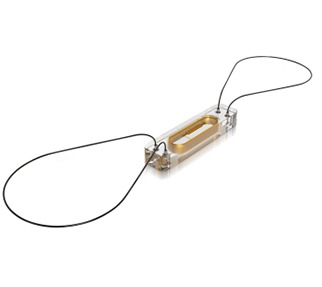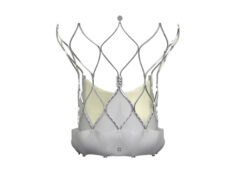
Late-breaking clinical research presented at the American College of Cardiology 66th Annual Scientific Sessions (ACC; 17-19 March, Washington, DC, USA) has shown treatment with Abbott’s CardioMEMS HF system to significantly reduce heart failure hospital admissions and improve the quality of life in patients with heart failure (NYHA Class III).
The research includes more than 1,100 Medicare patients and also published in the Journal of the American College of Cardiology (JACC).
Researchers found a 46% reduction in heart failure hospitalisations in patients six months after receiving the CardioMEMS HF system, and a 34% reduction at 12 months post-implant. The data are consistent with what was seen in the CHAMPION clinical trial. According to a press release, this further confirms that when physicians adjust medications based on the patient’s pulmonary artery pressures, related hospitalisations are significantly reduced.
“These results support the clinical effectiveness and potential cost savings of using an implantable haemodynamic monitor to help with heart failure management,” says Akshay Desai, director of the Heart Failure Disease Management Program at Brigham and Women’s Hospital in Boston, USA. “Reducing heart failure hospitalisations is an important goal for patients and hospitals alike, and may help to improve long-term clinical outcomes and quality of life for our patients.”
The data also showcased important cost-savings captured through reductions in heart failure hospitalisations associated with the use of the CardioMEMS HF system. In particular, in the six months post-implant, each patient had an average reduction of more than US$10,500 in comprehensive health care costs compared to the six months prior to implant. Twelve month post-implant analysis showed a US$13,190 reduction in costs per patient.
“The reduction in hospitalisations and costs associated with heart failure confirmed by these data shows that proactive patient management with the CardioMEMS HF system is successful in mainstream practice and results in improved clinical outcomes,” says Philip Adamson, medical director of Abbott’s heart failure business. “Success with this technology for us means helping patients get back to living their life.”
Data were collected using US Medicare claims from patients undergoing a CardioMEMS sensor implant to measure pulmonary artery pressure, and the rates of heart failure hospitalisations from before and after the implant were compared. Comprehensive heart failure-related costs were also compared. The data confirmed that haemodynamic monitoring with the CardioMEMS HF system in an outpatient setting reduced heart failure hospitalisation for patients while also reducing related costs.
Additional data on managing heart failure patients with the CardioMEMS HF system published recently in Circulation showed that patient compliance and physician-directed management outside of a clinical study led to a significant reduction of pulmonary artery pressures.











